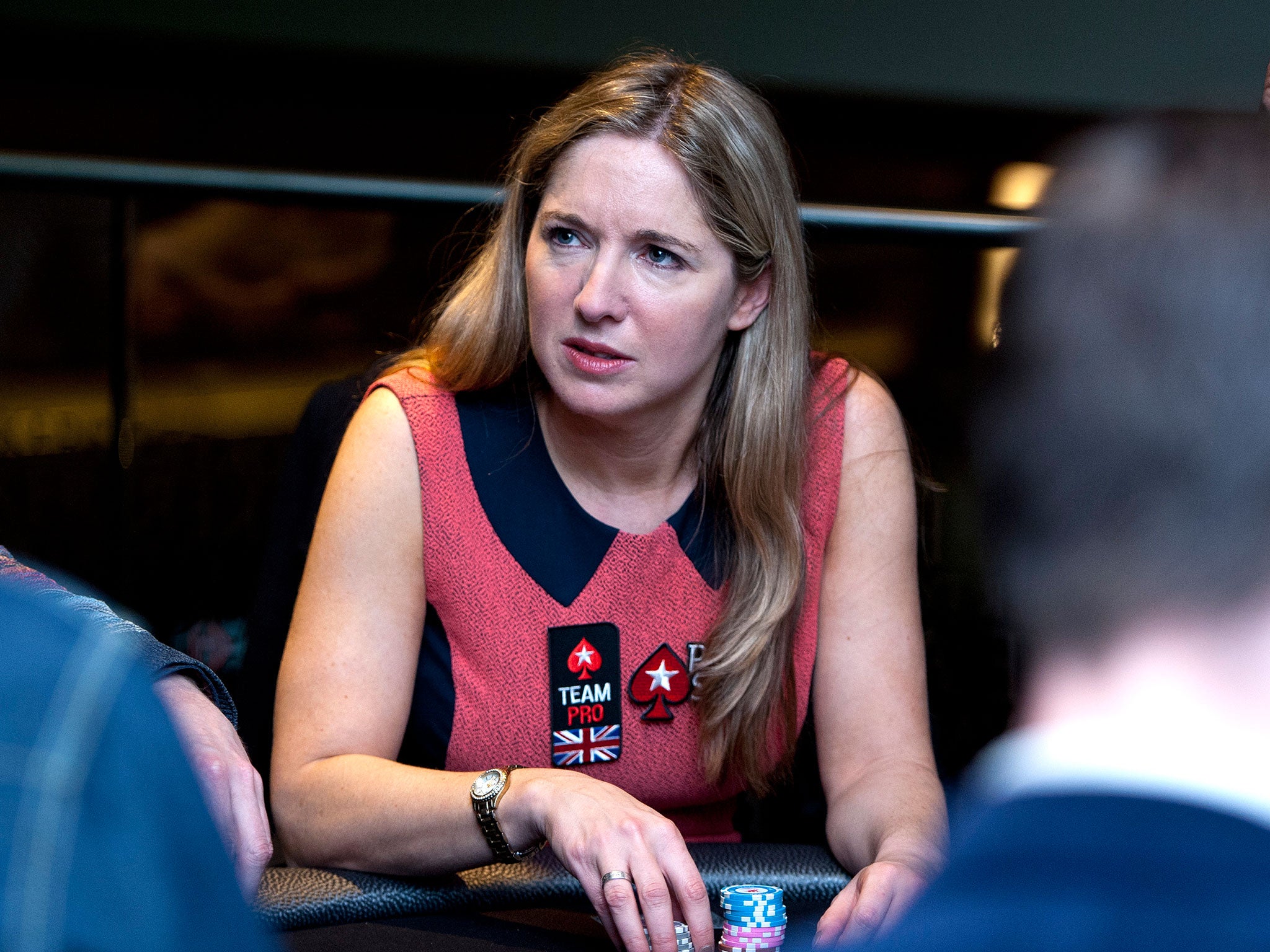Poker – a game of chance or a game of skill?
A ruling could have major implications

Your support helps us to tell the story
From reproductive rights to climate change to Big Tech, The Independent is on the ground when the story is developing. Whether it's investigating the financials of Elon Musk's pro-Trump PAC or producing our latest documentary, 'The A Word', which shines a light on the American women fighting for reproductive rights, we know how important it is to parse out the facts from the messaging.
At such a critical moment in US history, we need reporters on the ground. Your donation allows us to keep sending journalists to speak to both sides of the story.
The Independent is trusted by Americans across the entire political spectrum. And unlike many other quality news outlets, we choose not to lock Americans out of our reporting and analysis with paywalls. We believe quality journalism should be available to everyone, paid for by those who can afford it.
Your support makes all the difference.Any player worth a pair of deuces will tell you that poker is a game of skill. In the words of Lancey Howard, the unbeatable master in classic film The Cincinnati Kid, it’s all about “making the wrong move at the right time” – a snippet of wisdom he delivers after beating the Kid’s full house with a straight flush, a combination of hands with odds that have since been calculated to be in excess of 20-million-to-one.
Chris Moneymaker, winner of the 2003 World Series of Poker Main Event and surely the greatest example of nominative determinism in the game, once remarked: "The beautiful thing about poker is that everybody thinks they can play."
And he’s right.
Online poker rooms, which in 2013 alone generated an estimated £2.8 billion in gross winnings globally, attract millions of beginners whose assessment of their own abilities bears little relation to reality.
Naturally, there has never been any doubt that luck plays a part. The aforementioned greenhorns wouldn’t hang around for long if it didn’t. Equally, it would be bizarre to deny that at least some measure of skill must be involved – otherwise why would some competitors win more consistently than their rivals?
Chance vs skill
But the key question is whether one element dominates the other. The reasoning is simple enough: if chance dominates skill then poker is a game of chance, and if skill dominates chance then poker is a game of skill. This is what I set out to determine in research recently published in PLOS One, with colleagues Rogier Potter van Loon at the Erasmus University Rotterdam and Martijn van den Assem at VU University Amsterdam.
Drawing on a database of 456m player-hand observations from a year’s worth of online games, we first investigated how consistent player performance was. This revealed substantial evidence of the role of skill in successful play.
For instance, players who ranked in the best-performing 10% in the first six months of the year were more than twice as likely as others to do similarly well in the next six months. And, players who finished in the best-performing 1% in the first half of the year were 12 times more likely than others to repeat the feat in the second half. Meanwhile, players who fared badly from the start continued to lose and hardly ever metamorphosed into top performers.
The point here is that performance is predictable. In a game of chance there would be no correlation in the winnings of players across successive periods, whereas there would be in a game of skill. So we know for sure that poker can’t be a game of pure chance.
The tipping point
But that still leaves the crucial question of whether skill dominates chance. To examine this we ran simulations comparing the performance of skilled and unskilled players. We found the tipping point: skilled players can expect to do better than their relatively unskilled counterparts at least three quarters of the time after 1,471 hands have been played.
In other words, poker becomes a game of skill after around 1,500 hands. To put this into perspective, most online players are likely to play 1,500 hands in 19 to 25 hours – and less than that if they play multiple tables at the same time.
Of course, devoted players everywhere might feel inclined to celebrate this revelation. They can bask in the satisfaction of knowing the game they love demands and rewards genuine proficiency and that in the end talent and guile will usually triumph over blind luck.

Legal implications
But the issue is about more than validation and bragging rights. You might well wonder why researchers are spending their time formulating equations rooted in the myriad complexities of Texas Hold ‘Em. The reason? Whether poker is viewed as a game of chance or a game of skill has potentially major legal implications.
Doubts surrounding poker’s claim to being a game of skill have shaped legislation for years. Players in the UK currently pay no tax on their winnings, which is good news for everyone from the most modest online tyro to the likes of writer and TV presenter Victoria Coren Mitchell, whose career earnings on the professional circuit exceed £1.5m.
In some countries what are perceived to be games of chance are subject to much tougher jurisdiction: in most US states, for example, online poker has been essentially illegal since the passing of the 2006 Unlawful Internet Gambling Enforcement Act.
All of this could change if policymakers take heed of these findings that show the opposite. Even without them, the American legal system has already argued the case several times over, with judgements upheld, overturned and upheld again. Perhaps fittingly, there’s an awful lot of money at stake and we can expect the debate to rumble on, as new evidence comes to light.
nullThis article was originally published on The Conversation. Read the original article.
Join our commenting forum
Join thought-provoking conversations, follow other Independent readers and see their replies
Comments